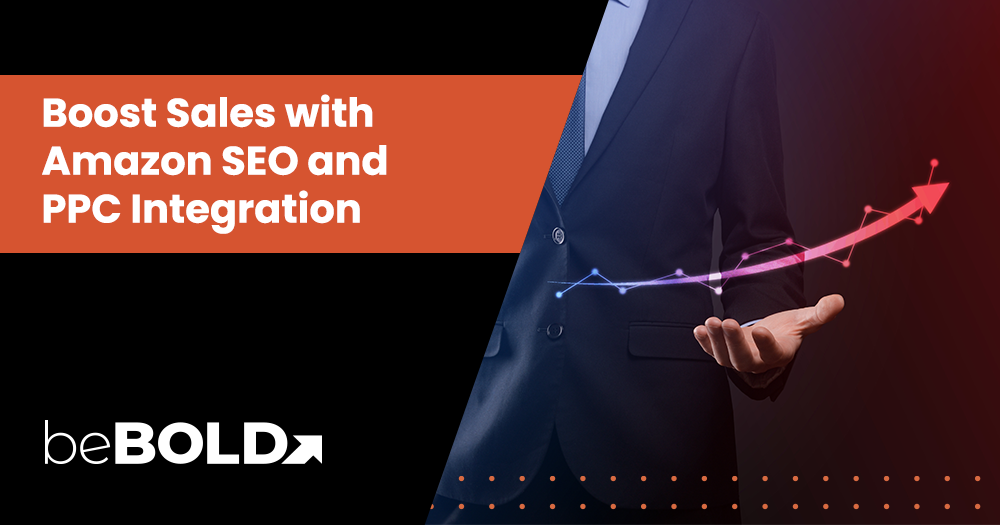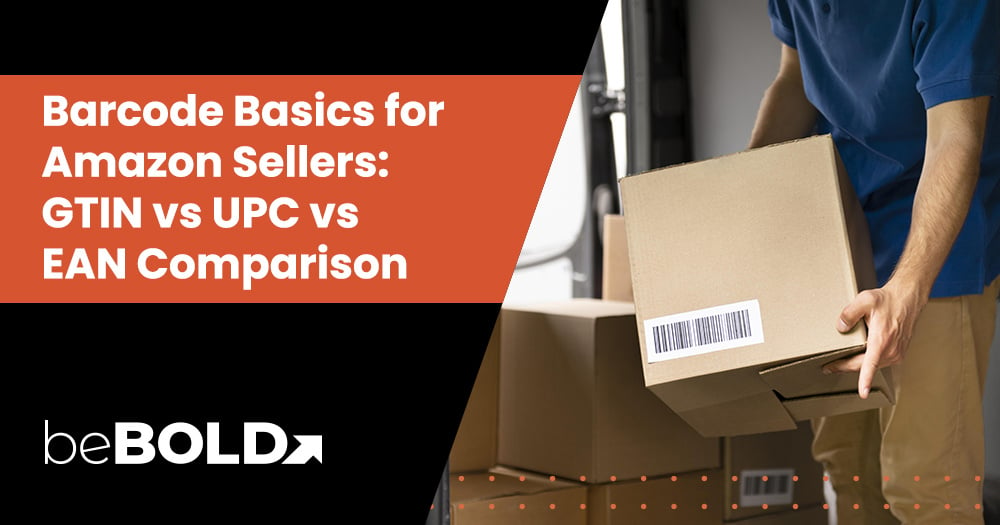Key Insights
- Amazon SEO and PPC Work Best Together – A strategic mix of both ensures immediate visibility while building long-term organic rankings. PPC drives quick sales, while SEO sustains them over time.
- PPC Delivers Instant Results but Requires Continuous Investment – Paid ads offer immediate exposure, but costs can rise quickly if not optimized properly. PPC is best for short-term sales boosts and new product launches.
- SEO is Cost-Effective but Takes Time – Optimizing Amazon listings with relevant keywords improves organic rankings but requires ongoing effort. It’s ideal for long-term growth and brand credibility.
- Keyword Integration is Crucial – PPC campaigns help identify high-converting keywords that can enhance SEO, while SEO research improves PPC targeting for better ad performance.
- Data-Driven Decisions Improve ROI—Refining SEO strategies based on PPC performance insights (and vice versa) ensures efficient spending and better sales outcomes.
- A Hybrid Approach Maximizes Sales Potential – Combining PPC and SEO ensures sustained visibility, higher conversion rates, and an optimized marketing budget.
Struggling to increase your product’s visibility on Amazon? Many sellers find it challenging to balance SEO and PPC effectively. Relying solely on PPC can be costly, while SEO takes time to deliver results. Without proper integration, you risk losing potential customers to competitors. Missing out on important backend keywords can also limit your reach and impact sales velocity.
Today, we’ll discuss the key differences between Amazon SEO and PPC, how they complement each other, and the best strategies to maximize your conversions. Let’s break down how to create a winning approach for long-term success on Amazon.
Amazon SEO vs PPC: A Competitive Comparison for Maximizing Sales

Two key Amazon marketing strategies dominate the landscape: Amazon SEO and Amazon PPC. Both aim to boost product visibility and drive sales, but they operate differently. Amazon SEO focuses on optimizing product listings with relevant keywords, high-quality images, and compelling descriptions to rank higher in organic search results. It’s a long-term strategy that builds sustainable growth without ongoing costs. On the other hand, Amazon PPC involves running paid ad campaigns to instantly gain visibility and drive traffic. While PPC delivers immediate results, it requires continuous investment.
Amazon PPC vs Amazon SEO: Key Differences

Amazon PPC is a paid strategy that provides instant visibility, while Amazon SEO focuses on organic optimization for long-term rankings. PPC delivers quick results but requires continuous investment, whereas SEO builds sustainable growth over time.
|
Feature |
Amazon PPC |
Amazon SEO |
|
Definition |
Pay-per-click advertising, where sellers bid on specific keywords to display Amazon ads |
Optimization of Amazon listings to rank higher in organic search results. |
|
Cost |
Paid strategy where advertisers pay per click. |
Free, but requires time and effort to optimize listings. |
|
Time to see results |
Immediate, as ads appear once the campaign is live. |
Takes weeks or months to improve rankings organically. |
|
Sustainability |
Results disappear once ad spending stops. |
Long-term strategy with sustained rankings over time. |
|
Visibility |
Provides instant visibility at the top of search results. |
Requires continuous optimization but offers long-term visibility. |
|
Control |
FCompletecontrol over keyword targeting and advertising budget. |
Dependent on Amazon’s algorithm and ranking factors. |
|
Sales Impact |
Quick but temporary sales boost. |
Gradual but consistent sales growth. |
|
Algorithm Influence |
Directly influenced by ad spend and bid strategy. |
Relies on product relevance, essential keywords, customer reviews, and sales velocity. |
What is Amazon PPC?

Amazon Pay-Per-Click (PPC) is a paid advertising model that boosts product visibility by placing ads at the top of search results. It drives targeted traffic, increases sales velocity, and delivers instant results. However, poor budget management agency and keyword optimization can lead to high costs. Integrating PPC with Amazon SEO helps sustain rankings and improve profitability. This balanced approach maximizes conversions while ensuring long-term success.
How Amazon PPC Works:
- Amazon sellers bid on relevant keywords to increase their product’s visibility. Higher bids improve ad placement, driving more traffic to listings.
- Amazon PPC Ads appear in high-visibility areas, such as search results and product pages. This strategic positioning helps attract potential buyers instantly.
- Advertisers are charged when users click on their ads, making PPC cost-effective. Proper budget management ensures profitability while maintaining ad visibility.
- Data-driven insights help optimize Amazon PPC campaigns for better ROI. Analyzing performance metrics refines targeting and improves conversion rates.
How Amazon PPC Boosts Organic Rankings?
Amazon PPC isn’t just about driving paid traffic—it plays a crucial role in enhancing organic rankings by improving sales velocity, a key factor in Amazon’s A9 algorithm. Here’s how:
1. PPC Spending Optimizes Long-Term SEO Visibility
Investing in Amazon PPC isn’t just for immediate sales—it also lays the groundwork for more substantial organic visibility. When PPC campaigns generate consistent conversions, Amazon recognizes the product as high-performing, boosting its organic rankings.
Even after reducing PPC spending, the organic ranking improvements gained through sales velocity and keyword relevance help maintain visibility. Additionally, strategic PPC campaigns can introduce products to a broader audience, generating brand recognition that leads to higher organic click-through rates (CTR) over time.
2. Higher Click-Through Rate (CTR) and Conversions Enhance Organic Rankings
Running PPC ads increases exposure, leading to more clicks and conversions. A high CTR and strong conversion rate signal to Amazon that the product is relevant, which improves its position in organic search results.
When potential buyers see a product frequently in both paid and organic results, they are more likely to trust and purchase it, further driving up its organic visibility. This cycle of increased exposure, clicks, and conversions helps solidify a product’s position in Amazon’s search results.
3. A/B Testing with PPC Refines Keyword Selection & Listing Performance
PPC campaigns provide valuable data that can improve SEO strategy. A/B testing different ad copies, keyword targeting, and listing variations helps determine which elements drive the highest conversions.
Insights from PPC performance can then be applied to optimize product titles, bullet points, descriptions, and backend search terms for better organic rankings. By continuously refining listings based on PPC data, sellers can ensure their products remain competitive in both paid and organic search results.
4. PPC Drives Reviews & Customer Engagement, Strengthening SEO
More PPC-driven sales result in more customer reviews, which Amazon weighs heavily in organic rankings. High ratings and engagement enhance credibility, improving long-term SEO success.
Encouraging satisfied customers to leave reviews through follow-up emails or post-purchase interactions can further boost organic rankings. Amazon’s algorithm favors listings with a strong review profile, making PPC a valuable tool for generating the initial traction needed to establish trust and credibility.
5. PPC Budgeting for Long-Term SEO Growth
A well-structured PPC budget can accelerate organic rankings while maintaining profitability. Key strategies include:
- Early-Stage Investment: Allocate a higher PPC budget for new product launches to quickly establish sales velocity and keyword relevance.
- Gradual Transition: As organic rankings improve, reduce PPC spending on high-performing keywords while maintaining ad support for competitive terms to sustain momentum.
- Data-Driven Adjustments: Regularly analyze PPC performance to reallocate budget toward the most profitable keywords and refine organic listing optimization. Using Amazon’s advertising reports, sellers can identify which search terms are driving conversions and adjust their organic SEO strategy accordingly.
6. Retargeting PPC Traffic to Reinforce Organic Growth
Amazon PPC can also be used for retargeting, keeping products visible to previous visitors who didn’t convert initially. By targeting these users with Sponsored Display or Sponsored brand ads, sellers can increase the likelihood of repeat visits and conversions. More touchpoints lead to improved brand recall and a higher probability of customers returning to purchase organically.
7. Seasonal & Trend-Based PPC to Strengthen Organic Momentum
Capitalizing on seasonal trends with well-timed PPC campaigns can boost sales velocity and, in turn, improve organic rankings. For example, running aggressive PPC campaigns during peak shopping seasons (like Prime Day, Black Friday, or holiday sales) can drive significant conversions, which helps maintain organic visibility long after the promotional period ends.
Pros and Cons of Amazon PPC
|
Pros |
Cons |
|
Immediate visibility in search results |
Costly if not managed effectively. |
|
Targeted approach to reach potential buyers |
Requires continuous funding to sustain results |
|
Increase brand awareness quickly |
Increases in competition can lead to higher CPC |
|
Provide measurable data and insights |
Temporary results-stopping ads mean losing visibility |
What is Amazon SEO?

Amazon Search Engine Optimization (SEO) improves organic rankings in Amazon’s search engine. It enhances product visibility by optimizing Amazon listings with essential keywords. Read more about Amazon SEO here.
How Amazon SEO Works:
- Optimizing product titles, descriptions, bullet points, and images improves the product’s visibility. Well-structured content enhances engagement and boosts conversion rates.
- Incorporating high-search-volume keywords and backend keywords increases search relevance. Strategic keyword placement helps Amazon listings rank higher organically.
- Enhancing customer reviews and ratings builds credibility and trust with buyers. Positive reviews contribute to better rankings and higher conversion rates.
- Avoiding keyword stuffing ensures a natural and readable product listing. Following Amazon’s algorithm updates and best practices helps maintain strong rankings.
Pros and Cons of Amazon SEO
|
Pros |
Cons |
|
Free and cost-effective in the long run |
It is time-consuming and requires ongoing optimization |
|
Sustainable organic rankings with proper optimization |
Results take weeks or months to materialize |
|
Builds brand name credibility and trust among buyers |
Dependent on Amazon’s algorithm and ranking factors |
|
Enhances product visibility across multiple searches |
Requires consistent updated and keyword research |
Can Amazon PPC and SEO Work Together?

Absolutely! A combined approach leveraging both Amazon PPC campaigns and SEO provides the best of both worlds:
|
Benefit |
How PPC Helps |
How SEO Helps |
|
Increased Visibility |
Provides immediate product exposure |
Improves organic rankings for long-term discoverability |
|
Keyword Optimization |
Identifies high-converting keywords for SEO |
Uses performing keywords from PPC for better targeting |
|
Conversion Boost |
Drives traffic quickly, increasing sales velocity |
Sustain rankings and enhance credibility over time |
|
Data-Driven Decisions |
Provides insights on best-performing keywords |
Helps refine keyword strategy based on PPC results |
|
Positive Reviews |
Drive initial sales to gain positive reviews |
Positive review enhances organic rankings and conversions |
Which Strategy Should You Prioritize?
Choosing the right strategy depends on your business goals. While PPC drives immediate visibility and sales, SEO ensures long-term growth. Here's a quick guide to help you decide which approach works best for your needs.
|
Business Goal |
Best Strategy |
|
Short-term sales boost |
PPC |
|
Long-term brand name visibility |
SEO |
|
Lower marketing costs |
SEO |
|
Scaling an established product |
PPC+SEO |
|
New product launch |
PPC for immediate traction, followed by SEO for sustainability |
How do you optimize both PPC and SEO?

- Use PPC to Identify High-Performing Keywords: Run Amazon advertising campaigns to discover converting keywords and integrate them into SEO strategy. This helps refine organic content with data-backed insights.
- Optimize Amazon Listings: Ensure titles, bullet points, and descriptions are keyword-rich and compelling. High-quality content improves rankings and conversion rates.
- Allocate Advertising Budget Strategically: Invest in PPC for quick wins but continue refining SEO for long-term gains. A balanced budget prevents overspending while maximizing visibility.
- Leverage Data Analytics: Utilize Amazon’s reports to track performance, identify trends, and make data-driven adjustments for better ROI.
- Continuously Improve Listings: Optimize images, A+ content, and customer reviews to maintain high rankings and build trust.
- Avoid Keyword Stuffing: Focus on natural keyword integration to comply with Amazon’s algorithm and enhance readability.
- Partner with an Amazon Agency: Work with Amazon experts to refine and scale SEO and PPC strategies, ensuring sustainable growth and a competitive edge.
Partner with beBOLD Digital for Amazon SEO & PPC Excellence
Navigating Amazon’s competitive landscape can be challenging, but you can maximize sales potential with the right expertise. beBOLD Digital specializes in Amazon SEO and PPC strategies, helping businesses achieve higher organic rankings, targeted Amazon PPC campaigns with optimized ROI, data-driven insights for sustainable growth, and enhanced product visibility with increased positive reviews.
We ensure long-term success and immediate sales impact by integrating proven SEO and PPC tactics. Contact us today to elevate your Amazon business with a customized SEO & PPC strategy!
Conclusion: SEO vs PPC – Which One Wins?
Amazon SEO and PPC are not competitors but complementary strategies for a successful marketing approach. PPC delivers quick results by instantly boosting the product’s visibility, while SEO builds long-term organic rankings. Integrating both ensures sustained growth, balancing immediate sales with lasting discoverability.
Aligning these strategies with your business goals, product lifecycle, and advertising budget can maximize conversions. A hybrid approach leveraging PPC for instant traction and SEO for long-term stability is the key to dominating Amazon sales.
Frequently Asked Questions
What is the difference between Amazon PPC and SEO?
The fundamental difference between Amazon PPC and SEO lies in cost and time. While PPC is a paid strategy that offers quick results, Amazon SEO is a free method that takes time to improve a product's organic ranking on Amazon SERPs.
Does using PPC impact Amazon's organic rankings?
Yes, running PPC ads can enhance Amazon's organic ranking. The increase in sales velocity through PPC can send positive signals to Amazon's algorithm, improving organic search placement.
How long does it take to see results from SEO efforts?
Results from SEO efforts can take anywhere from a few weeks to several months. This largely depends on the marketplace's competitiveness, your product category, and the effectiveness of your SEO strategies. Optimizing product listings with high-ranking keywords, improving images, and gaining customer reviews can accelerate results. However, for highly competitive niches, it may take longer to see significant organic ranking improvements. Consistently refining your SEO approach, monitoring keyword performance, and leveraging data insights can help speed up the process. Patience and persistence are key, as SEO builds long-term visibility and sustainable growth on Amazon.
How much should you invest in PPC campaigns?
Investing in PPC campaigns largely depends on several factors, such as the competitiveness of the keywords, your advertising goals, and your budget. However, PPC should ideally be a part of your overall marketing budget for promoting your Amazon products.
Boost your Amazon sales with expert SEO & PPC strategies. Contact beBOLD Digital today!








Comments